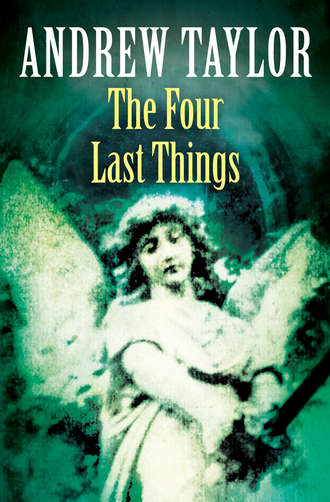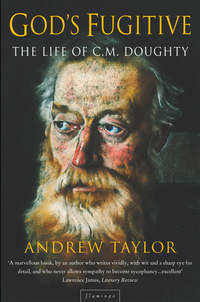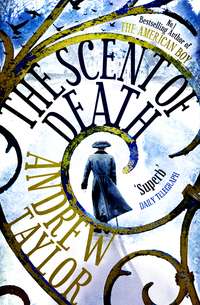
Полная версия
The Four Last Things
‘Where the hell were you?’ he demanded as he opened the door to her. ‘Do you know what time it is?’
‘I’m sorry,’ she snapped, her mind still full of the room she had left, with the bed, the people, the smells and the chattering television and the view from a high window of Willesden Junction beneath an apocalyptic western sky. ‘Someone was dying and there wasn’t a phone.’
‘You should have sent someone out, then. I’ve phoned the Cutters, the hospitals, the police.’
His face crumpled. She put her arms around him. They clung together by the open door. Michael’s hands stroked her back and her thighs. His mouth came down on hers.
She craned her head away. ‘Michael –’
‘Hush.’
He kissed her again and this time she found herself responding. She tried to blot out the memory of the room with the high window. One of his hands slipped round to the front of her jeans. She shifted back to allow his fingers room to reach the button of the waistband.
‘Mummy,’ Lucy called. ‘I’m thirsty.’
‘Oh God.’ Michael drew back, grimacing at Sally. ‘You go and see her, love. I’ll get the drink.’
The following evening, he came home with a personal alarm and a mobile phone.
‘Are you sure I need all these?’
‘I need you to have them.’
‘But the cost. We –’
‘Bugger the cost, Sal.’
She smiled at him. ‘I’m no good with gadgets.’
‘You will be with these.’
She touched his hand. ‘Thank you.’
The alarm and the phone helped at least for a time. The fact that Carla could now contact her at any time was also reassuring. But the fear returned, a familiar devil. Feeling watched was a part of it. So too was a sense of the watcher’s steady, intelligent malevolence. Behind the watching was a fixed purpose.
But there was nothing, or very little, to pin it to. The evidence was skimpy, almost invisible, and capable of innocent interpretations: a small, pale van which one afternoon followed her car round three successive left turns; someone in a long raincoat walking down Hercules Road late at night and glancing up at the windows of the flat; warm breath on the back of her neck in a crowd swirling down the aisle of a supermarket; Lucy’s claim that a man had winked at her in the library when she went there with Carla and the other children. As to the rest, what did it amount to but the occasional shiver at the back of the neck, the sense that someone might be watching her?
To complicate matters, Sally did not trust her instincts. She couldn’t be sure whether the fear was a response to something in the outside world or merely a symptom of an inner disturbance. This was nothing new: since her teens, she had trained herself to be wary of her intuitions partly because she did not understand them and partly because she knew they could be misleading. She lumped them together with the uncomfortably vivid dreams and the moments when time seemed to stand still. They were interesting and disturbing: but there was nothing to show that they were more than freak outbreaks of bioelectrical activity.
The scepticism was doubly necessary at present: she was under considerable strain, in a state which might well induce a certain paranoia. In the end it was a question of degree. Carrying a rape alarm was a sensible precaution against a genuine danger: acting as if she were a potential terrorist target was not.
In November, leaves blew along the pavements, dead fireworks lined the gutters, and mists smelling of exhaust fumes and decaying vegetables softened the outlines of buildings. In November, Uncle David came to lunch.
The ‘Uncle’ was a courtesy title. David Byfield was Michael’s godfather. He had been a friend of his parents and his connection with Michael had survived their deaths and the cooling of his godson’s religious faith. An Anglo-Catholic, he was often addressed as ‘Father Byfield’ by those of the same persuasion. The November lunch in London had become a regular event. In May the Appleyards went to Cambridge for a forbiddingly formal return fixture at the University Arms.
This Saturday was the worst yet. It began badly with an emergency call from Derek, who had gone down with toothache and wanted Sally to take a wedding for him. Sally abandoned the cooking and Lucy to Michael. Neither the service nor the obligatory appearance at the reception did much for her self-esteem. The bride and groom were disgruntled to see her rather than Derek, and the groom’s mother asked if the happy couple would have to have a proper wedding afterwards with a real clergyman.
When Sally returned to Hercules Road she found the meal over, the sink full of dirty plates, the atmosphere stinking of David’s cigarettes and Lucy in tears. Averting his eyes from her dog collar, David stood up to shake hands. Lucy chose this moment to announce that Daddy was an asshole, an interesting new word she had recently picked up at Carla’s. Michael slapped her leg and Lucy’s tears became howls of anguish.
‘You sit down,’ Michael told Sally. ‘I’ll deal with her.’ He towed Lucy away to her room.
David Byfield slowly subsided into his chair. He was a tall, spare man with prominent cheekbones and a limp due to an arthritic hip. As a young man, Sally thought, he must have been very good-looking. Now he was at least seventy, and a lifetime of self-discipline had given his features a harsh, almost predatory cast; his skin looked raw and somehow thinner than other people’s.
‘I’m so sorry not to have been here for lunch,’ Sally said, trying to ignore the distant wails. ‘An unexpected wedding.’
David inclined his head, acknowledging that he had heard.
‘The vicar had to go to casualty. Turned out to be an abscess.’ Why did she have to sound so bright and cheery? ‘Has Lucy been rather a handful?’
‘She’s a lively child. It’s natural.’
‘It’s a difficult age,’ Sally said wildly; all ages were difficult. ‘She’s inclined to play up when I’m not around.’
That earned another stately nod, and also a twitch of the lips which possibly expressed disapproval of working mothers.
‘I hope Michael has fed you well?’
‘Yes, thank you. Have you had time to eat, yourself?’
‘Not yet. There’s no hurry. Do smoke, by the way.’
He stared at her as if nothing had been further from his mind.
‘How’s St Thomas coming along?’
‘The book?’ The tone reproved her flippancy. ‘Slowly.’
‘Aquinas must be a very interesting subject.’
‘Indeed.’
‘I read somewhere that his fellow students called him the dumb ox of Sicily,’ Sally said with a touch of desperation. ‘Do you have a title yet?’
‘The Angelic Doctor.’
Sally quietly lost her temper. One moment she had it under firm control, the next it was gone. ‘Tell me, do you think that a man who was fascinated by the nature of angels has anything useful to say to us?’
‘I think St Thomas will always have something useful to say to those of us who want to listen.’
Not trusting herself to speak, Sally poured herself a glass of claret from the open bottle on the table. She gestured to David with the bottle.
‘No, thank you.’
For a moment they listened to the traffic in Hercules Road and Lucy’s crying, now diminishing in volume.
The phone rang. Sally seized it with relief.
‘Sally? It’s Oliver. Is Michael there?’
‘I’ll fetch him.’
She opened the living room door. Michael was sitting on Lucy’s bed, rocking her to and fro on his lap. She had her eyes closed and her fingers in her mouth; they both looked very peaceful. He looked at Sally over Lucy’s face.
‘Oliver.’
For an instant his face seemed to freeze, as though trapped by the click of a camera shutter. ‘I’ll take it in the bedroom.’
Lucy whimpered as Michael passed her to Sally. In the sitting room, Lucy curled up on one end of the sofa and stared longingly at the blank screen of the television. Sally picked up the handset of the phone. Oliver was speaking: ‘… complaining. You know what that …’ She dropped the handset on the rest.
‘It’s a colleague of Michael’s. I’m afraid it may be work.’
‘I should be going.’ David began to manoeuvre himself forward on the seat of the chair.
‘There’s no hurry, really. Stay for some tea. Anyway, perhaps Michael won’t have to go out.’ Desperate for a neutral subject of conversation, she went on, ‘It’s Oliver Rickford, actually. Do you remember him? He was Michael’s best man.’
‘I remember.’
There was another silence. The subject wasn’t neutral after all: it reminded them both that David had refused to conduct their wedding. According to Michael, he had felt it would be inappropriate because for theological reasons he did not acknowledge the validity of Sally’s orders. He had come to the service, however, and hovered, austere and unfestive, at the reception. He had presented them with a small silver clock which had belonged to his wife’s parents. The clock did not work but Michael insisted in having it on the mantelpiece. Sally stared at it now, the hands eternally at ten to three and not a sign of bloody honey.
Michael came in. She knew from his face that he was going out, and knew too that something was wrong. Lucy began to cry and David said he really should leave before the light went.
The last Friday in November began with a squabble over the breakfast table about who should take Lucy to Carla’s. As the school was closed for In-Service Training, Lucy was to stay with the child minder all day.
‘Can’t you take her this once, Michael? I promised I’d give Stella a lift to hospital this morning.’
‘Why didn’t you mention it before?’
‘I did – last night.’
‘I don’t remember. Stella’s not ill, is she?’
‘They’re trying to induce her daughter. It’s her first. She’s a couple of weeks overdue.’
‘It’s not going to make that much difference if Stella gets there half an hour later, is it?’
‘It’ll be longer than that because I’ll hit the traffic.’
‘I’m sorry. It’s out of the question.’
‘Why? Usually you can –’
Michael pushed his muesli bowl aside with such force that he spilled his tea. ‘This isn’t a usual day.’ His voice was loud and harsh. ‘I’ve got a meeting at nine-fifteen. I can’t get out of it.’
Sally opened her mouth to reply but happened to catch Lucy’s eye. Their daughter was watching them avidly.
‘Very well. I’d better tell Stella.’
She left the room. After she made the phone call she made the beds because she couldn’t trust herself to go back into the kitchen. She heard Michael leaving the flat. He didn’t call goodbye. Usually he would have kissed her. She was miserably aware that too many of their conversations ended in arguments. Not that there seemed to be much time at present even to argue.
On the way to Carla’s, Sally worried about Michael and tried to concentrate on driving. Meanwhile, Lucy talked incessantly. She had a two-pronged strategy. On the one hand she emphasized how much she didn’t want to go to Carla’s today, and how she really wanted to stay at home with Mummy; on the other she made it clear that her future happiness depended on whether or not Sally bought her a conjuring set that Lucy had seen advertised on television. The performance lacked subtlety but it was relentless and in its primitive way highly skilled. What Lucy had not taken into account, however, was the timing.
‘Do be quiet, Lucy,’ Sally snarled over her shoulder. ‘I’m not going to take you to Woolworth’s. And no, we’re not spending all that money on a conjuring set. Not today, and not for Christmas. It’s just not worth it. Overpriced rubbish.’
Lucy tried tears of grief and, when these failed, tears of rage. For once it was a relief to leave her at Carla’s.
The day moved swiftly from bad to worse. Driving Stella to hospital took much longer than Sally had anticipated because of roadworks. Stella was worried about her daughter and inclined to be grumpy with Sally because of the delay; but once at the hospital she was reluctant to let Sally go.
The hospital trip made Sally late for the monthly committee meeting dealing with the parish finances which began at eleven. She arrived to find that Derek had taken advantage of her absence and rushed through a proposal to buy new disco equipment for the Parish Room, a scheme which Sally thought unnecessarily expensive. Despite his victory, Derek was in a bad mood because during the night someone had spray-painted a question on the front door of the Vicarage: IS THERE LIFE BEFORE DEATH?
‘Infuriating,’ he said to Sally after the meeting. ‘So childish.’
‘At least it’s not obscene.’
‘If only they had come and talked to me instead.’
‘There are theological implications,’ she pointed out. ‘You could use it in a sermon.’
‘Very funny, I’m sure.’
He scowled at her. For a moment she almost liked him. Only for a moment. She walked back to her car in the Vicarage car park. It was then that she discovered that she had left her cheque book and a bundle of bills at home. The bills were badly overdue and in any case she wanted to draw cash for the weekend. Skipping lunch, she drove back to Hercules Road where to her surprise she found Michael. He was sitting at his desk in the living room going through one of the drawers. There was a can of lager on top of the desk.
‘What are you doing?’
He glanced at her and she knew at once that their quarrel at breakfast time had not been forgotten or forgiven. ‘I have to check something. All right?’
Sally nodded as curtly as he had spoken. In silence she collected her cheque book and the bills. On her way out, she forced herself to call goodbye. Once she reached the car she discovered that she had managed to leave her phone behind. She didn’t want to go back for it because that would mean seeing Michael again.
She drove miserably back to Kensal Vale. It wasn’t just that she knew that Michael was capable of nursing a grudge for days. She worried that this grudge was merely a symptom of something worse. Perhaps he wanted to leave her and was summoning up the strength to make the announcement. Not that there was much to keep him. Their existence had been reduced to routine drudgeries coordinated by a complicated timetable of draconian ferocity. At the thought of life without him her stomach turned over.
She was down to visit a nursing home for the first part of the afternoon, but when she reached the Vicarage (IS THERE LIFE BEFORE DEATH?) she found a message in Derek’s neat, italic hand.
Tried to reach you on your mobile. Off to see Archdeacon. Margaret at Brownies p.m. Please ring police at KV – Sergeant Hatherly – re attempted suicide. Paint apparently indelible.
She picked up the telephone and dialled the number of the Kensal Vale police station. She was put through to Hatherly immediately.
‘We had this old woman tried to kill herself last night. She’s in hospital now. Still in a coma, I understand. I think she’s one of your lot so I thought we’d better let you know.’
‘What’s her name?’
‘Audrey Oliphant.’
‘I don’t know her.’
‘She probably knows you, Reverend.’ Hatherly used the title awkwardly: like many people inside and outside the Church he wasn’t entirely sure how he should address a woman in holy orders. ‘She’s got a bedsit at twenty-nine Belmont Road. You know it? She’s one of the DSS ones, according to the woman who runs the place. Very religious. Her room’s full of bibles and crucifixes.’
‘What makes you think she’s one of ours?’
‘She had one of your leaflets. Anyway, I’ve checked with the RCs. They don’t know her from Adam.’
Sally pulled a pad towards her and jotted down the details.
‘Took an overdose, it seems. Probably sleeping tablets. According to the landlady, she’s a few bricks short of a load. Used to be in some sort of home, I understand. Now they’ve pushed her out into the community, poor old duck. Poor old community, too.’
‘I’ll ring the hospital and ask if I can see her. I could go via Belmont Road and see if there’s anything she might need.’
‘The landlady’s a Mrs Gunter. I’ll give her a ring if you like. Tell her to expect you. I think she’ll be glad if someone else will take the responsibility.’
That makes two of you, thought Sally.
‘I knew that one was trouble,’ Mrs Gunter said over her shoulder. ‘People like Audrey can’t cope with real life.’ She paused, panting, on the half-landing and stared at Sally with pale, bloodshot eyes. ‘When all’s said and done, a loony’s a loony. You don’t want them roaming round the streets. They need looking after.’
They moved slowly up the last flight of stairs. They were on the top floor of the house. Someone was playing rock music in a room below them. The house smelled of cooking and cigarettes. Mrs Gunter stopped outside one of the three doors on the top landing and fiddled with her keyring.
‘I phoned that woman at Social Services this morning. I’m sorry, I said, I can’t have her back here. It’s not on, is it? They pay me to give her a room and her breakfast. I’m not a miracle-worker.’ Mrs Gunter darted a hostile glance at Sally. ‘I leave the miracles to you.’
She unlocked the door and pushed it open. The room was small and narrow with a sloping ceiling. The first thing Sally noticed was the makeshift altar. The top of the chest of drawers was covered with a white cloth on which stood a wooden crucifix flanked by two brass candlesticks. The crucifix stood on a stepped base and was about eight inches high. The figure of Christ was made of bone or ivory.
‘If you met her on the stairs she was always muttering to herself,’ Mrs Gunter said. ‘For all I know she was praying.’
The sash window was six inches open at the top and overlooked the back of the house. The air was fresh, damp and very cold. The single bed was unmade. Sally stared at the surprisingly small indentation where Audrey Oliphant had lain. There were no pictures on the walls. A portable television stood on the floor beside the wardrobe; it had been unplugged, and the screen was turned to the wall. In front of the window was a table and chair. Against the wall on the other side of the wardrobe was a spotlessly clean washbasin.
‘She left a note.’ Mrs Gunter twisted her lips into an expression of disgust. ‘Said she was sorry to be such a trouble, and she hoped God would forgive her.’
‘How did you find her?’
‘She didn’t come down to breakfast. I knew she hadn’t gone out. Besides, it was time for her to change her sheets. And I wanted to talk to her about the state she leaves the bathroom.’
They found a leather-and-canvas bag with a broken lock in the wardrobe. As they packed it, Mrs Gunter kept up a steady flow of complaint. Meanwhile her hands deftly folded faded nightdresses and smoothed away the wrinkles from a tweed skirt.
‘She’s run out of toothpaste, the silly woman. I’ve got a bit left in a tube downstairs. She can have that. I was going to throw it away.’
‘Do you know where she went to church?’
‘I don’t know if she did. Or nowhere regular. If you ask me, this was her church.’
Sally picked up the three books on the bedside table. There was no other reading material in the room. All of them were small and well-used. Sally glanced at them as she dropped them in the bag. First there was a holy bible, in the Authorized Version. Next came a book of common prayer, inscribed ‘To Audrey, on the occasion of her First Communion, 20th March 1937, with love from Mother’.
The third book was Sir Thomas Browne’s Religio Medici, a pocket edition with a faded blue cloth cover. Sally opened the book at the page where there was a marker. She found a faint pencil line in the margin against one sentence. ‘The heart of man is the place the Devils dwell in: I feel sometimes a Hell within my self; Lucifer keeps his Court in my breast, Legion is revived in me.’
As Sally read the words her mood altered. The transition was abrupt and jerky, like the effect of a mismanaged gear change on a car’s engine. Previously she had felt solitary and depressed. Now she was on the edge of despair. What was the use of this poor woman living her sad life? What was the use of Sally’s attempt to help?
The despair was a familiar enemy, though today it was more powerful than usual. Its habit of descending on her was one of those inconvenient facts which she had to live with, like the bad dreams and the absurd moments when time seemed to stop; just another outbreak of freak weather in the mind. While she was driving to the hospital she tried to pray but she could not shift the mood. Her mind was in darkness. She felt the first nibbles of panic. This time the state might be permanent.
On one level Sally continued to function normally. She parked the car and went into the hospital. In the reception area she exchanged a few words with a physiotherapist who sometimes came to St George’s. She took the lift up to the seventh floor. A staff nurse was slumped over a desk in the ward office with a pile of files before her. Sally tapped on the glass partition. The nurse looked at the dog collar and rubbed her eyes. Sally asked for Audrey Oliphant.
‘You’re too late. Died about forty minutes ago.’
‘What happened?’
The nurse shrugged – not callous so much as weary. ‘The odds are that her heart just gave way under the strain. Do you want to see her?’
They had given Audrey Oliphant a room to herself at the end of the corridor. The sheet had been pulled up to the top of the bed. The staff nurse folded it back.
‘Did you know her?’
Sally stared at the dead face: skin and bone, stripped of personality; no longer capable of expressing anger or unhappiness. ‘I saw her once in church. I didn’t know her name.’
On the bed lay the woman who had cursed her.
Sally found it difficult not to feel that she was in one respect responsible for Audrey Oliphant’s death. It made it worse that the old woman now had a name. Perhaps if Sally had tried to trace her, Audrey Oliphant might still be alive. The pressure must have been enormous for a woman of that age and background to kill herself.
She phoned Mrs Gunter from the hospital concourse and gave her the news.
‘Best thing for all concerned, really.’
Sally said nothing.
‘No point in pretending otherwise, is there?’ Mrs Gunter sniffed. ‘And now I suppose I’ll have to sort out her things. You’d think she’d be more considerate, wouldn’t you, being a churchgoer.’
Sally said she would return Audrey Oliphant’s bag.
‘Hardly seems worth bothering. Audrey said she hadn’t got no relations. Not that they’d want her stuff. Nothing worth having, is there? Simplest just to put it out with the rubbish. Except Social Services would go crazy. Crazy? We’re all crazy.’
During the afternoon the despair retreated a little. It was biding its time. Sally visited the nursing home. She let herself into St George’s and tried to pray for Audrey Oliphant. The church felt cold and alien. The thoughts and words would not come. She found herself reciting the Lord’s Prayer in the outmoded version which she had not used since she was a child. The dead woman had probably prayed in this way: ‘Our Father, which art in heaven.’ The words lay in her mind, heavy and indigestible as badly cooked suet.
Halfway through, she glanced at her watch and realized that if she wasn’t careful she would be late picking up Lucy. She gabbled the rest and left the church. The Vicarage was empty but she left a note for Derek, who was still enjoying himself with the archdeacon.
It was raining, sending slivers of gold through the halos of the streetlamps. As Sally drove, she wondered whether Lucy had forgotten the conjuring set. It was unlikely. For one so young she could be inconveniently tenacious.
Sally left the car double-parked outside Carla’s house and ran through the rain to the front door. The door opened before she reached it.
Carla was on the threshold, her hands outstretched, her face crumpled, her eyes squeezed into slits and the tears slithering down her dark cheeks. The big living room behind her was in turmoil: it seethed with adults and children; and the television shimmered in the fireplace. A uniformed policewoman put her hand on Carla’s arm. She said something but Sally didn’t listen.








